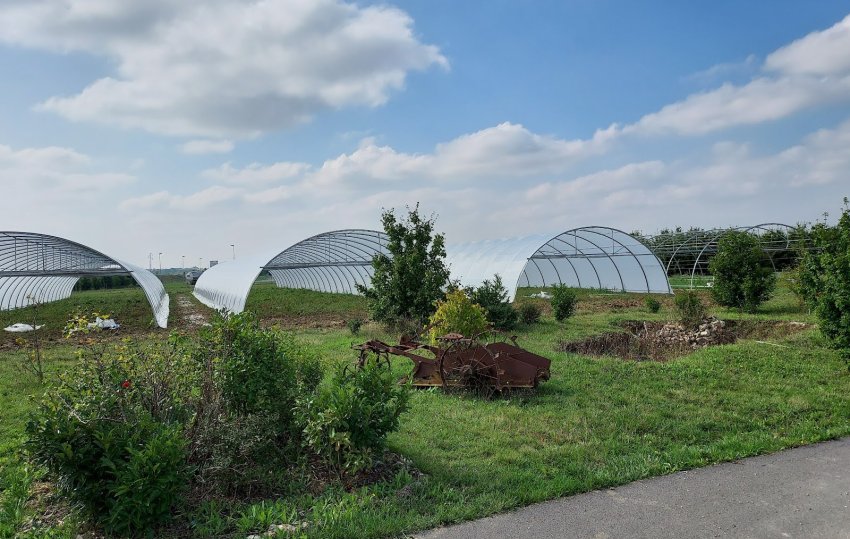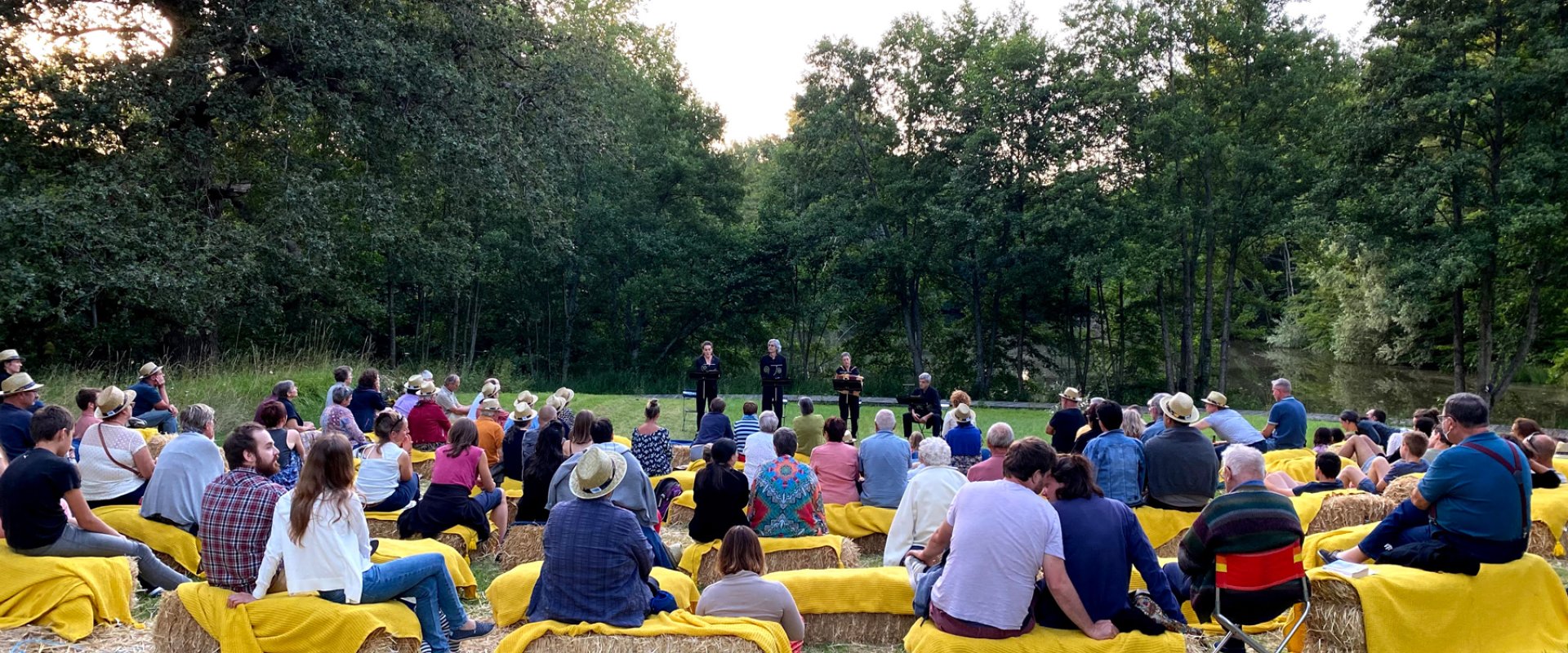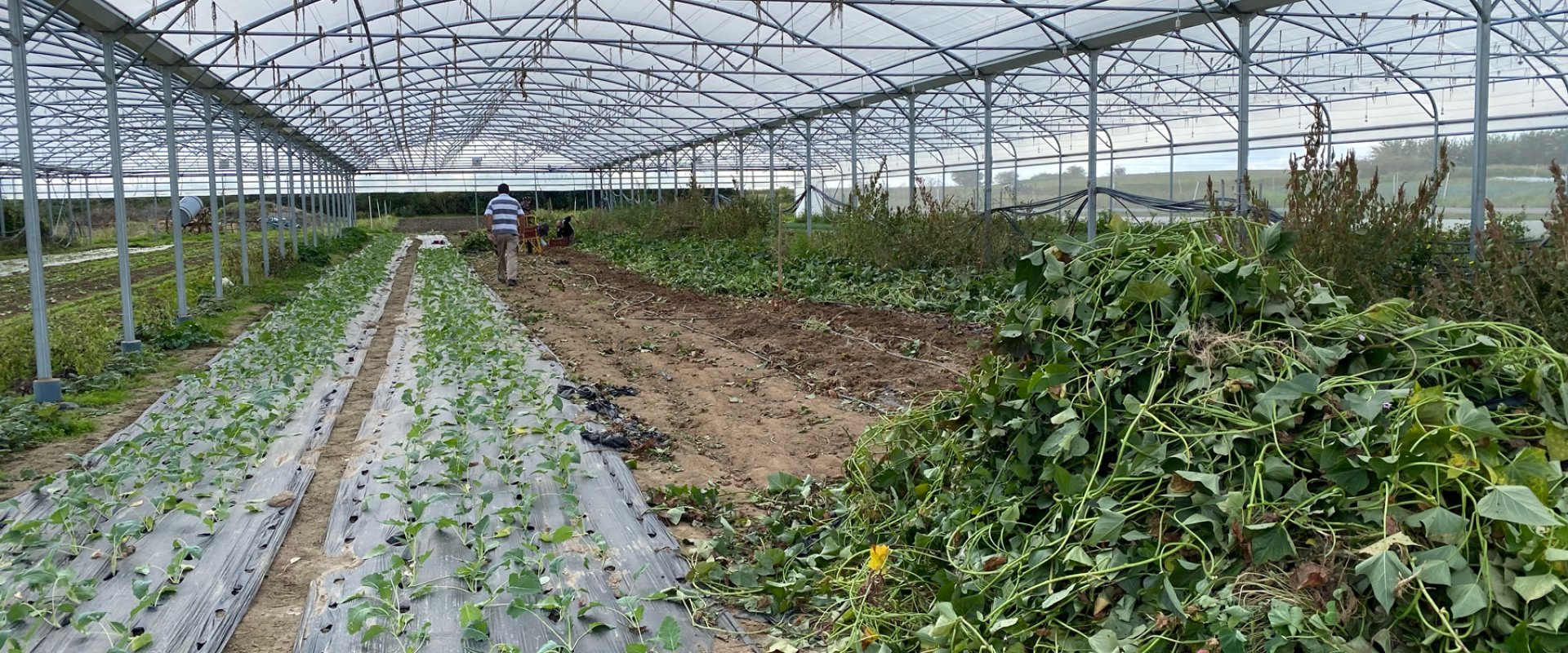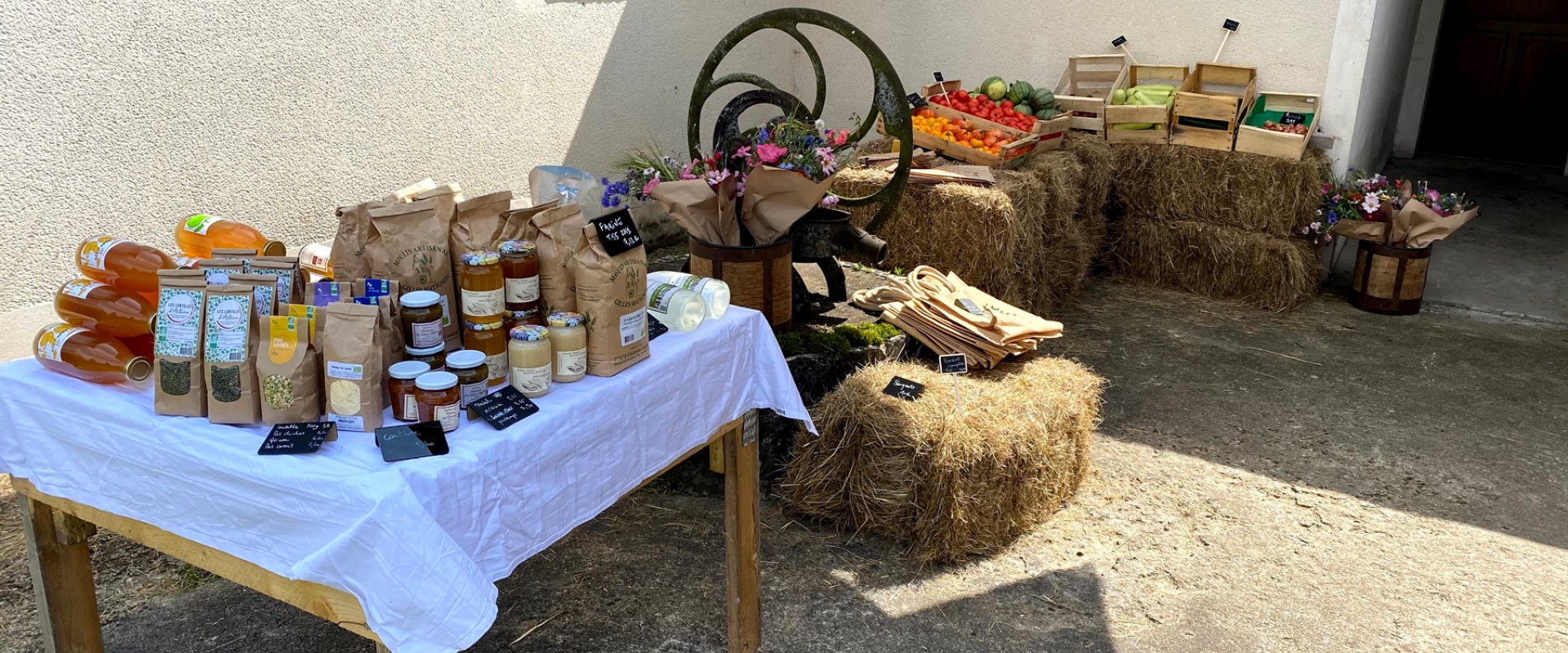
On the way to social entrepreneurship - joint interview
Created in 2010 on an abandoned motorway with the support of VINCI Autoroutes, the Jardins de la Voie Romaine Association, which combines organic market gardening and vocational integration, has become a major social player of the Loiret (region of France). This also tells the story of the meeting between an inspirational businessman, Timothée Huck, and the desire of VINCI Autoroutes to act in partnership with the regions. Joint interview.
What are the Jardins de la voie romaine and how did this ecological and social initiative come about?
Marc Bouron, Deputy Chief Executive Officer at VINCI Autoroutes:
In 2009, on completion of the construction of the A19 highway, we wondered about the future of an abandoned 6- to 7-hectare of unused land around motorway. We immediately came up with the idea of creating an organic market garden there. Supported by the Fondation VINCI pour la Cité and the Cocagne Network, we quickly added the principle of action for vocational integration. We formed the Jardins de la Voie Romaine Association in 2010. Today Timothée Huck is clearly the mind behind the development of the Association, which he has managed to place at the heart of the social polices of the Loiret Department.
« Suffering from isolation the people that come to us change in just a matter of weeks: it is noticeable! »

Timothée Huck
Timothée Huck, Manager of the Jardins de la Voie Romaine:
The Jardins de la Voie Romaine is a regional project combining integration and ecology. Located next to the A19 motorway, this five-hectare farm produces more than 120 tonnes of organic vegetables per year by people in a situation of back-to-work contracts. Silent victims of rural affected areas, those that we receive are directed to the Association by local social organisations (municipal social action centres, the employment service, local outreach teams, etc.) and they commit to working at a market garden as part of a personal project for getting back into employment. Suffering from isolation, mostly of the verge of giving up on their ability to set about a task, on coming to the Jardins, these individuals develop positively in just a matter of weeks: you see this first of all in their faces and in their eyes
What form did the partnership take between VINCI Autoroutes and the Jardins de la voie romaine ?
Marc Bouron :
VINCI Autoroutes and the Fondation VINCI pour la Cité actively participated in setting up the project and VINCI Construction played a part in designing the building. Then it was a true skill-based sponsorship that was adopted. Our legal department provided key support in setting out the articles of association and managing the governance of the Association. Recently one of our financial controllers came to support them and our HR teams were also called in to assist. Lastly, the roads agents provided regular technical support or simply gave a hand!
Timothée Huck :
Over and above the sharing skill-based sponsorship, VINCI Autoroutes and the Fondation VINCI pour la Cité provided us with significant financial aid right from the start of the project. We were lucky to benefit from their support because it was not easy to develop such a project in an area where the opportunities for social action are somewhat insufficient. Our relationship was established on the basis of trust.
What makes you proud of this initiative?
Marc Bouron :
A number of public players were surprised to see our business take an interest in such challenges, and yet this partnership gives purpose to our work and enforces our regional presence. It is an indicator of what private businesses can contribute to such projects and associations.
This partnership gives purpose to our work!

Marc Bouron
Timothée Huck :
In areas suffering from a combination of difficulties, we need spaces where we can create something new, where the intangible - mutual aid and fraternity - takes its rightful place. I'm particularly proud of this project, which is reaping the fruits - or rather the vegetables - it has sown: by 2021, we will have a 75% rate of return to employment or entry into training, well above the national average of 50%.
Aujourd'hui, les Jardins de la voie romaine c'est :
agricultural and social sites
employees including 70 on integration schemes
Most viewed
Vous aimerez aussi
Words from researchers: let's fight stereotypes!
Charlotte, a research fellow at École des Mines, and Erwan, a university professor and researcher at AgroParisTech, talk…
Fondation VINCI pour la Cité: opening the door to others is another way of reaching out!
With some 1.3 million organisations and 2 million employees, France can lay claim to a dynamic network of associations…
Sea water desalination: a solution for turning the tide on the water scarcity crisis?
As water shortages continue causing havoc in a growing number of regions around the world, an age-old idea is experiencing a…





